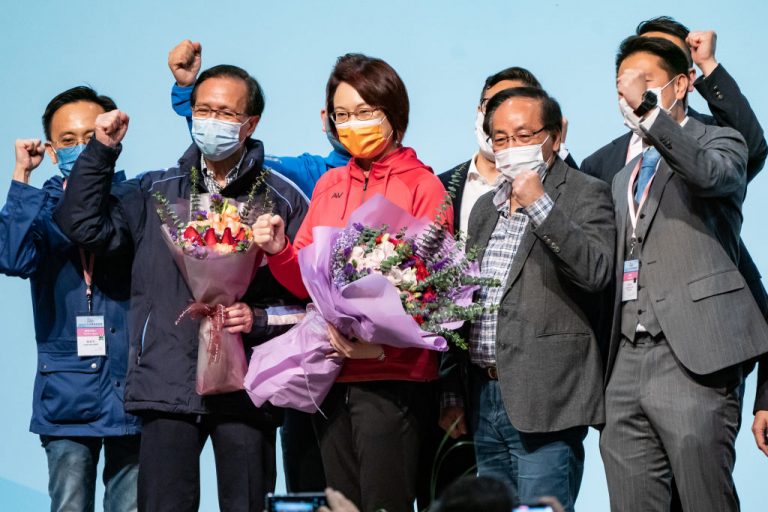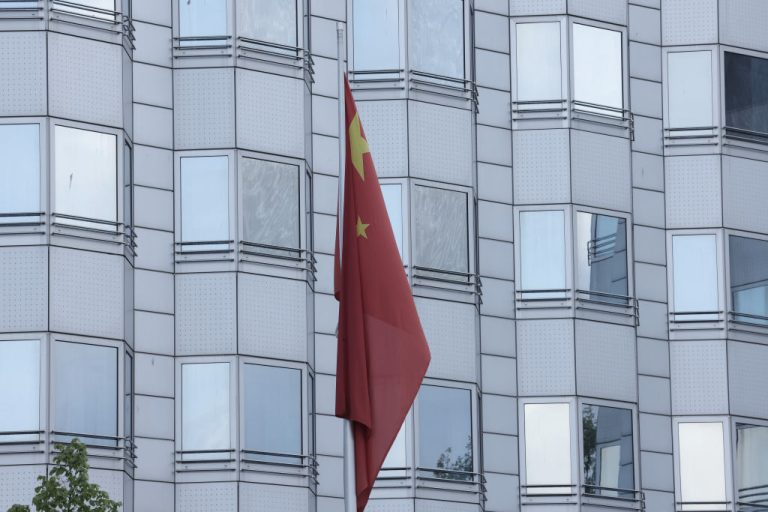On Dec. 19, pro-Beijing candidates swept the 2021 Hong Kong Legislative Council (LegCo) elections following a drastic Chinese Communist Party (CCP) imposed electoral overhaul which dictated that only candidates vetted by Beijing could run.
Voter turnout for the election was the lowest on record with only 30.2 percent of eligible voters participating, the BBC reported. Authorities said that a contingent of 6,000 police officers were on standby to address potential protesters and disruptions.
Despite efforts by the government to boost voter turnout the election had the lowest turnout of any Legislative Council election in history. Of Hong Kong’s approximately 7.5 million citizens only about 4,800 of the elite were allowed to select the Election Committee in Sunday’s elections or 0.064 percent of the population.
In 2016 approximately 233,000 Hong Kongers were allowed to cast a ballot to select the Election Committee.
Hong Kong leader, Carrie Lam, said at a news conference on Monday that she couldn’t pinpoint specific reasons for the low voter turnout “but 1.35 million coming out to vote, it cannot be said that it was not an…election that did not get a lot of support from citizens,” she said referring to the general election.
Success
You are now signed up for our newsletter
Success
Check your email to complete sign up
Beijing passed a law in May that sought to ensure only “patriotic” individuals would be eligible to run for positions of power prompting U.S. Secretary of State Antony Blinken to refer to the law as a “denial of democracy.” Only those vetted for political loyalty and cleared of being a national security threat were permitted to run in the elections.
Nathan Law, a pro-democracy activist who fled to Britain last year out of fear of being prosecuted in Hong Kong due to his activism said in regards to the elections that “Hong Kongers are completely cut off from electoral operations,” adding that “all election runners will become a puppet showmen under Beijing’s entire control…with no meaningful competition.”
Ted Hui, a former Hong Kong lawmaker residing in Australia, told AFP that the political system in Hong Kong is now “a rubber-stamp game completely controlled by Beijing. It’s more than a managed democracy. It’s an autocracy trying to pretend to be civilized.”
The elections were originally scheduled for Sept. 6, 2020 however on the last day of the nomination period, Chief Executive Carrie Lam invoked the Emergency Regulations Ordinance, which afforded her emergency powers to postpone the election. Her reasoning cited a resurgence of the COVID-19 virus however many speculated that the postponement was not due to COVID-19 but to fears that the pro-Beijing camp would lose the elections.
The new system
In March, 2021, the National People’s Congress (NPC) passed legislation to rewrite the election rules in Hong Kong, imposing a much stricter system. The system was put in place to ensure only “patriots govern Hong Kong.”
Under the new system, the number of Legislative Council seats increased from 70 to 90 and the number of directly elected geographical constituency seats was lowered to 20 from 35. Trade-based indirectly elected functional constituency seats remained at 30 and the Beijing-controlled 1,500-seat Election Committee would elect 40 seats to the Legislative Council. Five District Council “super seats” that were introduced in the 2010 electoral reform package were eliminated.
Also eliminated was the District Council that’s electorate once boasted 431directly elected members of the 18 District Councils of Hong Kong.
In addition, in April, the Hong Kong Government announced the Improving Electoral System Bill 2021, which included numerous changes to the electoral system that intended to “regulate acts that manipulate or undermine elections”, and criminalized anyone who incited others not to vote or cast a blank or spoiled ballot as a form of protest. Violators of the bill could face up to three years in prison.
The legislative election saw Starry Lee garner 51.43 percent of the popular vote or 680,563 votes. Ng Chau-pei, a pro-Beijing candidate for Hong Kong Island East won 14.53 percent of the popular vote or 192,235 votes.
The role of Chief Executive, which Carrie Lam currently occupies, will be chosen next year.







